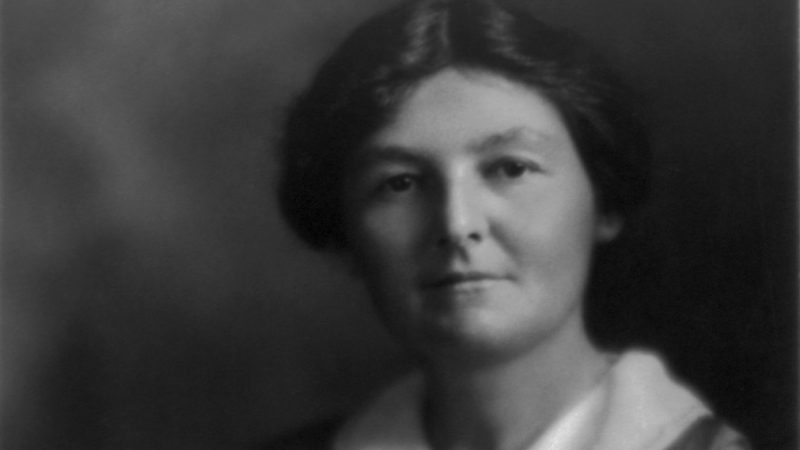
When, in December 1923, the first three Labour women MPs were sworn in they brought something new to British politics. Unlike the Tory and Liberal women elected before them they had not inherited their seats. They had got into parliament entirely through hard work and commitment to the Labour and trade union movements.
All three had worked in the National Federation of Women Workers. Dorothy Jewson (Norwich) had also been a suffragette. Susan Lawrence (East Ham North) had been to prison as part of the Poplar Rate Rebellion in 1921. And Margaret Bondfield (Northampton) had already broken almost every glass ceiling she had encountered, including becoming the first woman Chair of the TUC.
Margaret Bondfield would go on to make her mark in history as the first female cabinet minister, which is pretty much all she is remembered for now. But in fact she was the first working-class woman to fight her way into parliament through heavily male-dominated organisations and a deeply class-ridden and misogynist society.
Just six weeks after her election to parliament she became the first woman to hold government office as a junior minister in the Ministry of Labour. Excited newspapers marked the occasion in articles using headlines such as ‘Saint Maggie of the Labour Ministry’ and ‘Miss Bondfield’s Romantic Life Story’.
That story began in semi-rural, semi-industrial poverty in the West Country followed by years of apprenticeship in shops in Brighton. At 20 she emerged convinced, not only that there was something fundamentally wrong with the way society – both politically and economically – was organised, but that something should be done about it. The vehicle for that something soon turned out to be the Shopworkers’ Union and the wider Labour movement within which she spent the rest of her long and active life.
There are a number of reasons why we do not celebrate her contribution now. For one thing, she was never part of the female suffrage campaign, not because she did not believe in votes for women, but because she and other Labour and trade union activists campaigned for universal adult suffrage. The 1918 Act, which excluded most working-class women, was precisely what they had warned against. Margaret Bondfield thought it ‘a mean and inadequate little Bill‘.
She has also been written out of the histories of most of the men with whom she worked, a fate which has also befallen more than a few female politicians since. Largely middle-class male political historians writing about the period have a tendency to dismiss her as out of her depth, set up to fail by manipulative men, inexperienced, or just a dull middle-aged woman who brought nothing to the table.
In reality she was a remarkable political pioneer who had to create and occupy new space, and although there were many supportive male allies, there were also many others for whom the challenges facing working-class women a were never a priority.
She became an expert on the emerging benefits system precisely because she could see the difference it had the potential to make to ordinary women’s lives. She fought for the creation of maternity benefits, and argued strongly that they should be paid to and owned by women rather than their husbands.
She fought to improve working conditions for women in both her own industry and others, and during the First World War (which she opposed) she and Mary Macarthur forced the government to pay women coming into factories properly and to provide facilities for them.
Her parliamentary career was short and marred by the events of the 1929 Labour government. At its end she remained loyal to the Labour Party she had helped to create three decades previously and, together with 200 other MPs who had not joined Ramsay Macdonald’s National Government, she lost her seat in the 1931 general election.
Margaret Bondfield’s advocacy for social security extended far beyond Westminster and testified to her economic expertise. She discussed economic policies at length with her trailblazing friend Frances Perkins who, after becoming the first woman appointed to cabinet as Roosevelt’s Secretary for Labor, was a key architect of the New Deal.
She also chaired the Women’s Group on Public Welfare reporting on those affected by the extensive evacuations during World War II from the German bombings. The group made significant inroads in their report, Our Towns (1943), detailing evacuees’ atrocious living conditions and proposing a national health service and minimum wage.
Margaret Bondfield remains one of the unsung heroes of the Labour movement and a role model for aspiring women politicians today. As we mark the centenary of the election of the first Labour women MPs we should examine her legacy with new eyes and celebrate the achievements of a working-class woman who devoted her life to changing the world for the better.




More from LabourList
Labour place third in Gorton and Denton by-election as Greens gain seat
‘What Batley and Spen taught me about standing up to divisive politics’
‘Security in the 21st century means more than just defence’